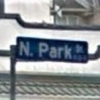That accounts for only 40% of the energy cost of your residence. Strata pays the remaining 60% for the common areas and building systems.
At the Encore we spent $70,467.01 last year on Hydro (keep in mind we have a heated pool, gym, amenity room, full time concierge and that number also includes electric car chargers). However, even if we ignore all those things $70,467.01 divided by 166 units divided by 12 months = $35.3 per month.
$22 + $35.3 per month is still less than 50% of the most efficient SFH you can build.
I agree condos are inefficient and you can build very efficient SFH homes, but you can't get around some very fundamental problems like SFH is losing heating in 5 different directions (versus a non-corner non-top floor condo is losing heating only in on direction), SFHs are much larger, new SFHs require a lot more infrastructure per unit, on average will require longer commute times, etc., etc.
In my opinion can't really argue that condos aren't far superior in terms of the environment. Once again, back to my Dockside example. A lot of residence there will walk to Save on Foods to buy groceries. Where are you going to walk to from Skirt Mountain (Southpoint) to buy anything?
Edited by MarkoJ, 19 October 2021 - 02:47 PM.














